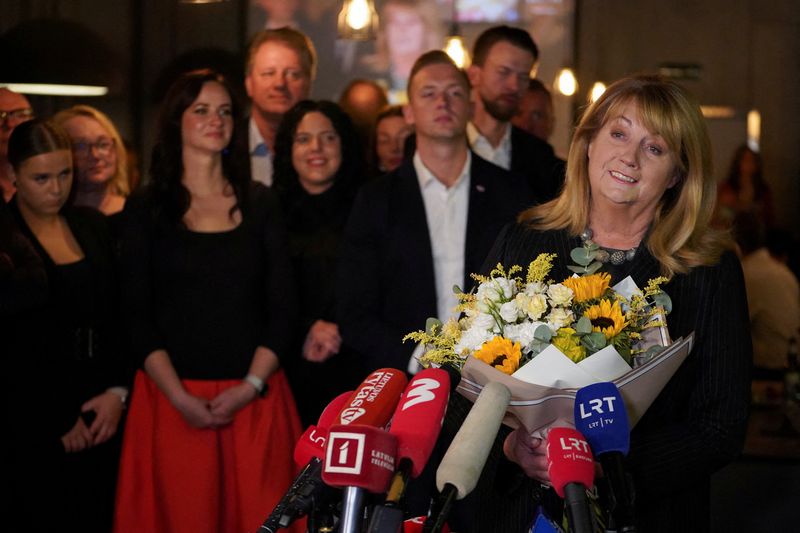By Andrius Sytas
VILNIUS (Reuters) – Lithuanians head to the polls on Sunday to decide a parliamentary election dominated by concerns over the cost of living and potential threats from neighbouring Russia, with the opposition Social Democrats ahead after the first-round vote.
The Baltic country of 2.9 million people has a hybrid voting system in which half of parliament is elected by popular vote. The rest is decided in district-based run-off votes between the top two candidates, a process which favours the larger parties.
Polling stations open at 7 a.m. (0400 GMT) and close at 8 p.m. (1700 GMT). Results are expected at about midnight local time (2100 GMT).
If the left-leaning Social Democrats (SD) succeed in forming a government, they are expected to maintain Lithuania’s hawkish stance against Russia and hefty defence spending.
Lithuania will spend about 3% of GDP on its armed forces this year, according to NATO estimates, making it the military alliance’s sixth-biggest spender.
The SD won 20% of the vote in the election’s first round on Oct. 14, making it the largest party ahead of the ruling Homeland Union with 18% and the anti-establishment Nemunas Dawn with 15%.
Prime Minister Ingrida Simonyte’s centre-right three-party coalition has seen its popularity eroded by high inflation that topped 20% two years ago, deteriorating public services and a widening gap between rich and poor.
After the first-round vote, SD leader Vilija Blinkeviciute said she was already in talks about forming a majority coalition government with two other parties – For Lithuania, and the Farmers and Greens Union.
The SD made a pact with opposition parties to support all run-off candidates running against Simonyte’s Homeland Union nominees.
Domestic economic issues were in focus during the election campaign, with the SD vowing to tackle increased inequality by raising taxes on wealthier Lithuanians to help fund more spending on healthcare and social support.
But national security is also a major concern in Lithuania, which lies on the eastern flank of NATO and the European Union and shares a border with the Russian exclave of Kaliningrad and Belarus, a close Moscow ally.
Three-quarters of Lithuanians think Russia could attack their country in the near future, a Baltijos Tyrimai/ELTA poll found in May.
(Reporting by Andrius Sytas; Editing by Helen Popper)
